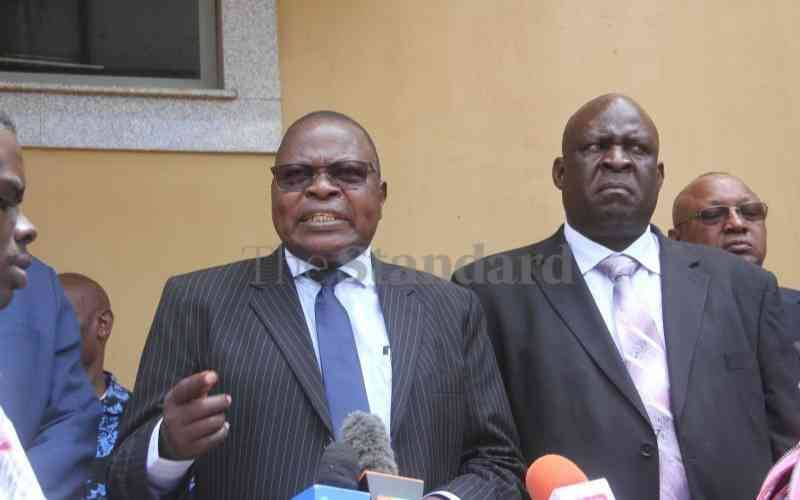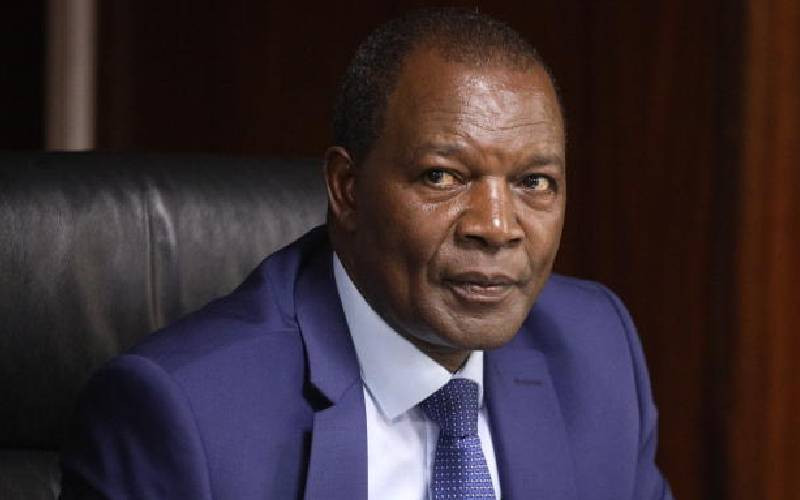By M.T. Akelo Misori
As the teachers’ strike enters the third week, Kenyans justifiably feel disappointed by the lethargic government response.
We teachers share this disappointment, and were startled by the government’s simultaneous implementation of precipitate salary changes that compound efforts to achieve equity, competitiveness and efficiency in the public service.
From January when we first served the employer with our salary demands, the government has made many missteps in its engagement with teachers, but last week’s increase of allowances for permanent secretaries is by far the most egregious.
With the new increases, a permanent secretary will now earn about Sh800,000 per month, the equivalent of the gross earnings for 20 graduate teachers at current scales.
With due respect to the huge responsibilities PSs shoulder, such salaries are simply unsustainable in our economy.
The old rationale for such sky-high salaries, like that PSs are few, just does not hold any water. For once a senior public officer is given a hefty package, others in similar positions use it as the new benchmark, leading to pay rises for top ranks that distort the labour market and undermine the country’s budget capacities.
This latest increase for PSs was justified by the need to bring them to par with other similarly-remunerated senior officials.
The extortionist salaries’ regime for senior officials began with the high pay in the then Kenya Anti-Corruption Commission Act – ostensibly to insulate KACC director from corruption. With hindsight, the gain Kenya made was not in the fight against corruption, but the exorbitant salaries now demanded by all constitutional commissions, MPs, judges and senior public servants like PSs.
In appreciation of the government’s financial constrains, Kuppet conceded some ground from our initial legitimate demand of complete harmonisation of salaries and allowances for teachers and civil servants — a goal government agreed to in principle in 2009 and 2011.
This last weekend, we informed the ad hoc committee addressing the strike of this irreducible minimum- harmonisation of basic pay and commuter backdated to July 2012. If this is granted, we are willing to push other allowances for structured negotiations. The committee chaired by Education PS Prof George Godia will communicate this position to the cabinet sub-committee tasked with resolving the salary dispute.
Vain attempt
Irrespective of how the cabinet sub-committee responds, the government’s commitment to a fair remuneration in the public service has been impeached. Many times before and during this strike, relevant officials dismissed our demands while implementing pay increases for other cadres in contravention of an understanding between government and our union that pending pay disputes would be addressed under a framework and legislation to be developed by the Salaries Commission.
In a vain attempt to intimidate unions, the government has orchestrated a number of legal suits on this strike, which only impinges its resolve to negotiate. Like the many sub-committees being created to address ordinary government business, the suits are completely counterproductive, projecting a yawning leadership vacuum and bureaucratic fatigue.
In fact, the very reason teachers went on strike is this lack of leadership. For more than two years, Kuppet and Knut had engaged the government on the same issues it is now trying to address through a committee. We entered into understandings, in January 2009 and September 2011, which the Ministry of Public Service later dishonoured.
Stay informed. Subscribe to our newsletter
Both times, as now, teachers gave in to the government’s request for more time and consultation with its various arms. These are the same requests the government has put on the table, although for good measure the Ministry of Finance, which was a party to the agreements, has flatly declined to meet teachers this time.
-Writer is Secretary General of KUPPET.
[email protected]
 The Standard Group Plc is a
multi-media organization with investments in media platforms spanning newspaper
print operations, television, radio broadcasting, digital and online services. The
Standard Group is recognized as a leading multi-media house in Kenya with a key
influence in matters of national and international interest.
The Standard Group Plc is a
multi-media organization with investments in media platforms spanning newspaper
print operations, television, radio broadcasting, digital and online services. The
Standard Group is recognized as a leading multi-media house in Kenya with a key
influence in matters of national and international interest.
 The Standard Group Plc is a
multi-media organization with investments in media platforms spanning newspaper
print operations, television, radio broadcasting, digital and online services. The
Standard Group is recognized as a leading multi-media house in Kenya with a key
influence in matters of national and international interest.
The Standard Group Plc is a
multi-media organization with investments in media platforms spanning newspaper
print operations, television, radio broadcasting, digital and online services. The
Standard Group is recognized as a leading multi-media house in Kenya with a key
influence in matters of national and international interest.







